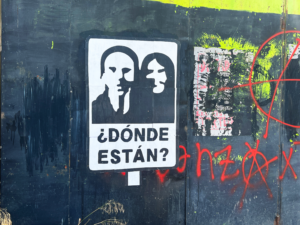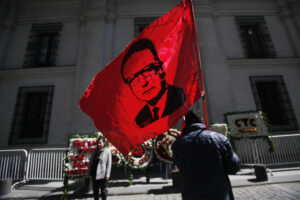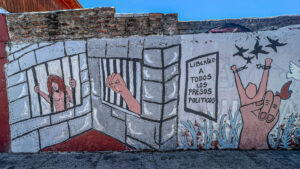Bachelet: Si y No
The election of Socialist pediatrician Michelle Bachelet as president is good news for the people of Chile. Especially given the alternatives.The election of Socialist pediatrician Michelle Bachelet as president on Sunday is good news for the people of Chile. Especially given the alternatives. By a 53-46% margin, Bachelet defeated the conservative candidate, Sebastian Pinera, who mostly is credited with bringing easy credit-card access to Chile.
Bachelet becomes Chile’s first woman president and one of the very few female heads of state in Latin American history. Her election as a woman — and also a self-proclaimed agnostic and single mother of three children from two different fathers — signals, without doubt, a potentially exhilarating cultural breakthrough for what is an oddly and unusually conservative country. Not until last year was even limited divorce legalized in Chile. Abortion is still outlawed. The Catholic Church operates one of the country’s most watched television networks, and the social boundaries of Chilean life sometimes feel as pinched as its string-like geographical shape.
Seventeen years of the not only politically repressive but also socially austere Pinochet dictatorship set back Chile’s cultural development for untold decades. In short, Bachelet’s election could help untether one very tightly wound Chilean society.
Bachelet’s potential to enact more than symbolic change, however, is something that must be viewed with a certain amount of skepticism. Her Socialist Party is, in fact, a cautious middle-of-the-road formation that has a lot more in common with American Democrats than with Cuban Communists. In alliance with the center-right Christian Democrats, Socialist President Ricardo Lagos has governed for the last six years with what might be called an excessive caution.
While his administration has increased spending on health and education programs, it has refused to fundamentally alter or reform the “savage capitalist” economic system imposed by the Pinochet dictatorship. Compared with neighboring Latin American nations, Chile has, indeed, shown steady economic growth and stability. But at a high social cost that is often overlooked by its free-market boosters. Chile remains one of the most unequal economies in the world, producing fabulous wealth for a few and just above subsistence for many. There’s a sizable Chilean middle class, but it lives in a state of perpetual economic fear and constraint.
Nor have Bachelet’s allies shown much enthusiasm for cleaning up Chile’s horrific human rights legacy for once and for all. The Lagos government exerted pressure on the courts to not fully pursue Pinochet (who nevertheless is closer to trial than ever before). Bachelet, on the other hand, was herself a victim of torture under the Pinochet regime. And her father, an air force general who had been a Cabinet minister in the government of Salvador Allende, died in custody after his own bouts with Pinochet’s butchers (as a young translator to Allende at the time, I met Gen. Bachelet several times and greatly admired him).
Bachelet should be more aggressive in allowing prosecution of the remaining planners and perpetrators of torture and murder.
Perhaps more important, she should show the courage to enact significant economic reforms that start to level out the uphill playing field for most Chileans. The privatized and broken pension system cries out for more attention. As do underfunded schools and a rather hair-raising public health system. The Chilean minimum wage needs a hyper-boost. The 8% unemployment rate must be lowered by a public works program. And the dictatorship’s draconian labor code, never fully reformed since Pinochet’s departure from power, must be scrapped and redrawn to allow freer union organizing.
Chileans are a deeply disillusioned lot. Their interest in politics has plummeted over the years. First came Pinochet, who made politics illegal and dangerous. And then came 15 years of civilian rule that promised much but delivered less.
If Bachelet doesn’t take bold steps to inspire and re-engage Chileans in political life, the novelty of her gender will very soon wear thin.
Marc Cooper is a contributing editor to The Nation and a senior fellow at USC’s Annenberg Institute for Justice and Journalism and was a translator for then-Chilean President Salvador Allende.
Independent journalism is under threat and overshadowed by heavily funded mainstream media.
You can help level the playing field. Become a member.
Your tax-deductible contribution keeps us digging beneath the headlines to give you thought-provoking, investigative reporting and analysis that unearths what's really happening- without compromise.
Give today to support our courageous, independent journalists.






You need to be a supporter to comment.
There are currently no responses to this article.
Be the first to respond.